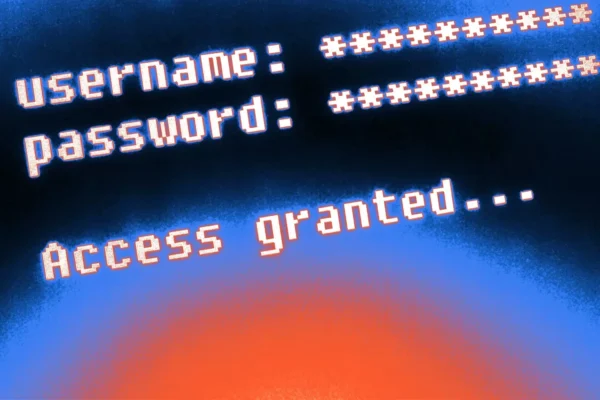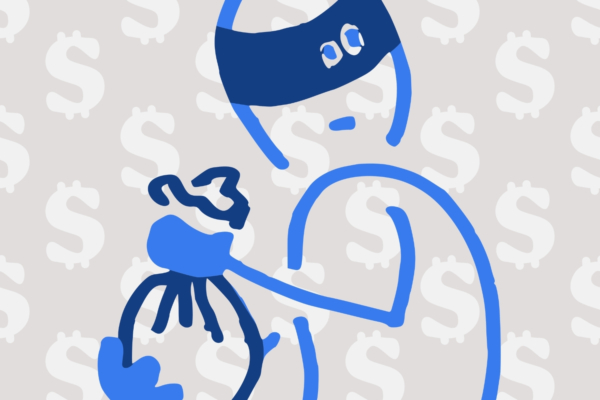
2023 Scams: Student Loan Forgiveness Scams

In the United States, over 42 million people owe a collective 1.75 trillion dollars in student loans. In the fall of 2022, President Joe Biden announced a wide-scale student loan debt relief initiative to alleviate this financial burden on people across the country.
With student loan forgiveness being a hot topic, it’s no surprise that scammers are trying to take advantage of unsuspecting consumers. Phony promises of student loan forgiveness are the latest on a long list of scams that people should be on the lookout for nowadays.
What are student loan forgiveness scams?
While the Biden administration tries to streamline student loan forgiveness and relief for those in need, scammers are capitalizing on the confusion and uncertainty surrounding this process.
Student loan forgiveness scams prey on borrowers’ frustration, promising immediate relief from costly debts in exchange for money or personal info. Unfortunately, these false promises leave you with the same obligation you started with, less money in your bank account, and a stolen identity.
What do student loan forgiveness scams look like?
Knowing the common signs of a student loan scam is critical for avoiding these types of situations. The following are some telltale signs of a scam.
- You are asked for money upfront. Legitimate student loan debt relief programs are free. A sure sign of a scam is if you are asked for money upfront in the form of cash, gift cards, or other non-creditable forms.
- You are promised immediate debt relief. Real debt forgiveness programs don’t immediately wipe away your balance. Real programs often have certain requirements that a borrower must meet, such as a certain number of qualifying monthly payments.
- They ask for personal information. Always be wary if someone asks for private information like your Social Security number, FSA ID, or account passwords.
- They reach out to you unsolicited. If you get unsolicited calls, texts, or emails from an organization you don’t recognize, be on guard.
Knowing what is legitimate and what is fraudulent isn’t always easy. Any time you’re questioning whether or not a forgiveness program is a scam, ask yourself if it checks any of these four boxes.
How to Avoid Student Loan Forgiveness Scams
The best way to avoid any kind of scam is to know what to look for and to always be on guard with your personal information. The following five tips will also go a long way in protecting your data and money against student loan forgiveness scams.
1. Know what forgiveness programs are real.
The good news is that there are legitimate forgiveness and discharge programs out there. Some of these include:
- Public Service Loan Forgiveness (PSLF Program)
- Teacher Loan Forgiveness
- Closed School Discharge
- Total and Permanent Disability Discharge
Each of these has unique requirements that borrowers must meet in order to qualify. For more information on federally-recognized programs, visit the United States Department of Education Office of Federal Student Aid website.
2. Don’t give into pressure to act quickly.
Avoid providing your personal information until you have verified the legitimacy of the company. Oftentimes scammers will pressure you to act quickly if you want to have your debt forgiven. Know that this is an intimidation tactic designed to discourage victims from doing their research. While federal programs may have deadlines, legitimate debt forgiveness programs will never bully you into making a quick decision.
3. Do not pay upfront fees.
Pressure to pay fees upfront is a common sign of a scam. If an organization is promising to erase debt in exchange for payment, run the other way!
4. Do not sign any contracts or documents before thoroughly reviewing them.
Always make sure you have a clear understanding of what you’re signing up for when it comes to your financials. Some scammers will have you sign legally binding documents, such as a power of attorney, that allow them to make decisions and take actions on your behalf.
It is also important to note the power that your FSA ID (your account username and password) has. Your FSA ID can be used to log in and electronically sign documents, meaning that your FSA ID has the same status as your written signature. The Department of Education nor your loan servicer will ever ask you to recite or text your FSA ID back to them.
5. When in doubt, check with your loan servicer.
Make sure to contact your lender or servicer directly to find out about available programs, as there are only a few government-endorsed student loan debt relief options. They will be able to confirm the legitimacy of a program or point you in the right direction to an organization that may be able to help you.
What to Do If You Think You’ve Been Scammed
If you think you may have fallen victim to a student loan forgiveness scam, it is important to contact your lender or servicer immediately to confirm whether the company in question is legitimate and to ensure no unwanted actions were taken on your loan.
If you learn that your information has landed in the wrong hands, take action to protect your financial and personal accounts.
- Let your bank and credit card companies know that your accounts have potentially been compromised and request payments to any fraudulent company be halted.
- Monitor your credit report for unauthorized activity.
- Change the passwords to any account or profiles involved in the scam, including bank accounts linked to the compromised profile.
- Set up bank account alerts so you can be clued into any suspicious activity.
You should also report the scam to the Federal Trade Commission, the Federal Student Aid office, and the Consumer Financial Protection Bureau. You can also contact your state’s Attorney General’s office for further help in resolving the issue.
Guard Your Data
Debt forgiveness scams may lure you in with the promise to help you get on the right financial footing, only to leave you in financial ruin. Always guard your data and be wary of any organization or person that makes promises that are too good to be true. When in doubt, take a step back, do some research, and think twice about who you give your information to.
Become an Amplify Member
Every Amplify account holder enjoys fee-free banking. That means no overdraft, maintenance, or other banking fees cutting into your pocket.


